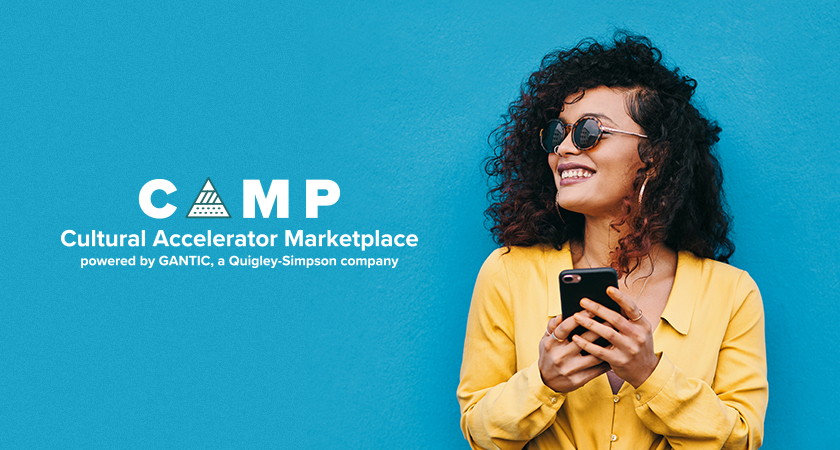October 6, 2021 It’s Time to Renegotiate the Advertising Contract With Consumers

The consumer got short-changed with the advent of digital. Access to all the world’s information came at a price–and not that pesky subscription fee that many publishers are pushing hard for these days. The price is privacy. The impending loss of third-party cookies will allow consumers to regain control of their online presence, while pushing
marketers to develop more effective ways of engaging them.
Digital Advertising Is the Equivalent of Modern-Day Stalking
For years, brands have been taking advantage of consumers by using third-party data to reach, engage, track, target, and retarget them in the hopes of converting them into customers. Advertisers and marketers have created a system of digital stalking focused on driving acquisition submission. Consumer experience be damned; brands were out there ”frequency-ing” audiences into conversion submission.
And the truth is, it worked!
Bid-based algorithmic buying systems armed marketers with the ability to drive growth at immense efficiency. Consumers became secondary to machine-driven revenues. Algorithms, powered by cookies, chased audiences across the web, learning and fine-tuning at each touch point and creating that machine-learning purchase propensity score that ultimately drove growth at incredible scale.
Cookies Facilitated All of It
Cookies created the illusion of accuracy through inference by:
| Targeting We could identify audiences based on their demographics (male, female, age group, income level), web behaviors, and more. | Frequency Management We could know how many times our ads were shown to particular consumers. | Dynamic Creative We could create a 1:1 message experience. |
| Optimization Events We could leverage a pixel on the landing page to make algorithms smarter and more effective. | Retargeting Cookies were probably invented to service the cash cow of growth marketing. | Measure We could measure attribution solutions, both multi-touch and singular. |
Consumers Got Tired of Being Stalked
The signs have been there, but few of us really noticed. Growth has always been the drug of choice for marketers, and it was coming in spades, thanks to the cookies and all the brilliant algorithms it enabled. But consumers started to take notice, and they are demanding change.
1. Ad blockers. 41% of U.S. consumers claim they use an ad blocker.
2. Cookie Clearance. Privacy-conscious consumers have been limiting their exposure to cookies either by deleting them regularly or using different browsers, like Apple’s Safari or FireFox.
3. Premium Experiences. Subscription services grew exponentially, based on the clear message: “Pay a subscription to us and we won’t serve you ads anymore.”
Advertising Is About Discovery
In the early days of advertising, the entire premise was built around creating discovery for consumers. How else were they going to learn about that new cleaning product that took all those pesky stains out of clothes? Or that new toothpaste that was both healthier for our teeth and gave us fresh breath? Advertising was discovery. The better the message, the more engagement from our audiences, and the more sales at the cash register. It was art, and we were the creators.
Today, advertising is trial and error. Do you like this? No? How about this? No? You’re sure to like this one, right? Nailed it! Now we’ll keep showing you this one until you see it in your dreams. Brands became addicted to the third-party data that informs advertising’s real-time micro-decisions because the outcomes were so profitable.
But at what cost?
In truth, we need those algorithms, and we need to test our way to better message effectiveness. The inevitable dissolution of third-party cookies gives us an opportunity to improve our relationship with customers through pragmatic, prescriptive strategies focused on building trust through relevance. And we should start now.
The challenge that cookies has created is that relevance was driven by the consumer. It wasn’t about marrying the message to the mechanism or that elusive right-place-right-time cliché we’ve been chasing. Relevance was based on one of two things: historical engagement with the brand or presumptive likelihood to engage with the brand. It stopped mattering where or when ads were served, as long as they were served to the right audiences.
Relevance = Trust
The idea of marrying discovery with relevance is about trust. A consumer can learn and engage with your brand if you are delivering some sort of value. Be it opportunity, insight, or even entertainment, value is intrinsic to the consumer and their mindset.
Value through trust is really what brands should be aspiring to deliver through their marketing efforts. Create real connections and opportunity for a conversion via relationship instead of bombardment.
A Win for Brands?
There was a definitive sigh of relief when Google announced its postponement, and one that should be celebrated. Not because we get to keep our precious cookies a little while longer, but because it was an indication that Google wasn’t in charge. For years, Google had dogged the industry with its dictatorial changes, creating chaos for weeks, often months, as brands scrambled to unravel their existing strategies and accommodate. This delay by Google sent a clear message that they recognize they aren’t the only game in town any longer and that they cannot simply dictate the terms.
Google’s delay also perpetuates the problem for consumers and brands alike. Not only will it prolong what is deemed inevitable, it will give the advertising industry more time to perfect its future context-based algorithms on the back of cookies. Context was meant to be the new targeting signal in a post-third-party-cookie world, but now we’ll see new cohort-based algorithms fine-tuned over the next two years using cookies as the blueprint. The opportunity for advertisers will lie somewhere in the middle. Marrying cohort with context will be a boon for consumers, and likely more so than for advertisers.
Change Is Life
In marketing, it’s not football that is life, but change. And that’s what’s exciting. We get to be creative, analytical, and decisive about new opportunities that enter the marketplace.
Cookies will (most likely) deprecate eventually. While we have all been given a reprieve, it doesn’t mean we shouldn’t strive to be better marketers—to actually put the consumer in the middle and rebuild the trust that those algorithms disregarded. We don’t need Google’s permission to get better and smarter for our customers, and we never did.
— Scott Marsden











